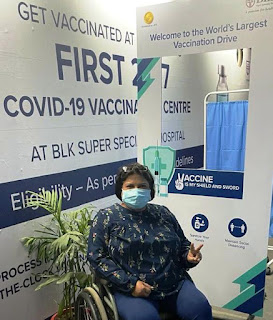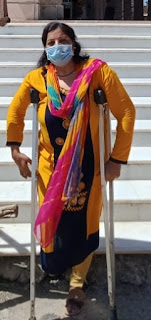COVID-19 Pandemic Lockdown: Disability Inclusion Must Go On

Date: 10 June 2021 The COVID-19 pandemic has exacerbated the vulnerability of people with disability to isolation and discrimination, affecting their right to live independently and be included in the community. The pandemic threatens to reverse gains achieved from years of advocacy that had started to ensure policies and programs were disability-inclusive in line with the UN CRPD. In such situations of humanitarian crisis, people with disabilities (PwDs) remain the most left out and deprived category in availing support and care. No Looking Back Using new communication technologies such as WhatsApp, Samarthyam Team set up an active group of the APNO Organisation of Persons with Disabilities (OPDs) under UNESCAP partnership project “Protecting and empowering persons with disabilities in the context of the COVID-19 pandemic”. The project activities were planned in full swing; however, India was hit by the second wave of the COVID-19 pandemic...



